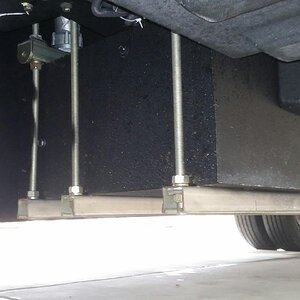bpaikman
RVF Supporter
- Joined
- Jun 25, 2020
- Messages
- 1,079
- Location
- Lake Jackson, Texas
- RV Year
- 2014
- RV Make
- Newmar
- RV Model
- Ventana LE 3436
- RV Length
- 35 feet
- Chassis
- Freightliner
- Engine
- Cummins 340 hp
- TOW/TOAD
- 2013 Subaru Crosstrek - manual, flat tow
- Fulltimer
- No
This isn't directly RV related but there is a lot of wisdom and experience in this group. So I'm going to ask your opinions:
We noticed a house for sale in our area, and I found it listing through realtor.com. It seems to be a good fit for us so I click the button that said text me and never got a text. So the next day I click the button to contact an agent and never got a reply to tha.
So I contacted a well-known local realtor to arrange for a showing ...and the receptionist said that an agent would be in touch with me. They never contacted me.
So I called a different company that seems to be especially active in the area, and after speaking with the receptionist, the owner herself came on the line to speak to me. She says there's a new thing that's been an effect since September that requires me signing a buyers agreement before they would even show me the house. This smells fishy to me - I've had several bad experiences with realtors and sellers, so I trust them about as much as.... time-share sellers. I'm sorry if some of you are realtors, I have sold 3 houses and bought two houses through realtors, and had some unpleasant quirks every time (failure to disclose, lowballing, etc.) I'm uneasy about any commitment at this stage.
now I'm beginning to wonder if this is why that beautiful house been sitting on the market for six months.
I decided to drop the whole thing, until I find out more about this so-called buyers agreement.
I did see a couple of Google articles that say "beware"..... well what am I supposed to do?
We noticed a house for sale in our area, and I found it listing through realtor.com. It seems to be a good fit for us so I click the button that said text me and never got a text. So the next day I click the button to contact an agent and never got a reply to tha.
So I contacted a well-known local realtor to arrange for a showing ...and the receptionist said that an agent would be in touch with me. They never contacted me.
So I called a different company that seems to be especially active in the area, and after speaking with the receptionist, the owner herself came on the line to speak to me. She says there's a new thing that's been an effect since September that requires me signing a buyers agreement before they would even show me the house. This smells fishy to me - I've had several bad experiences with realtors and sellers, so I trust them about as much as.... time-share sellers. I'm sorry if some of you are realtors, I have sold 3 houses and bought two houses through realtors, and had some unpleasant quirks every time (failure to disclose, lowballing, etc.) I'm uneasy about any commitment at this stage.
now I'm beginning to wonder if this is why that beautiful house been sitting on the market for six months.
I decided to drop the whole thing, until I find out more about this so-called buyers agreement.
I did see a couple of Google articles that say "beware"..... well what am I supposed to do?












